Home » How to Write Content Marketing For Law Firms
Content marketing for law firms holds the key to unlocking a resource of potential clients, but success depends on more than just publishing articles—it requires both strategy and engaging storytelling.
In the guide below, we lay out the pillars of content marketing excellence, including actionable best practices and illustrative examples to elevate your content!
What is Legal Content Writing?

Legal content writing is about making the law approachable. It’s crafting content that showcases your expertise and helps you connect with your audience on a personal level.
Think of it as a conversation where you’re explaining complex legal topics in a way that’s easy to grasp. This kind of content can range from blog posts and articles to FAQs and guides, all designed to inform and engage your potential clients.
By breaking down legal jargon into accessible information, you’re not just helping readers understand their legal issues; you’re also showing them that you’re a firm that cares about making the law understandable.
This blend of authority and approachability can set you apart from competitors and make clients feel more comfortable reaching out for help.
A good example of law firm website content writing is Baker McKenzie’s blog, which covers multiple topics:

Meanwhile, beyond blogs, legal content writing also covers recent publications and news, which DLA Piper called Featured Insights:
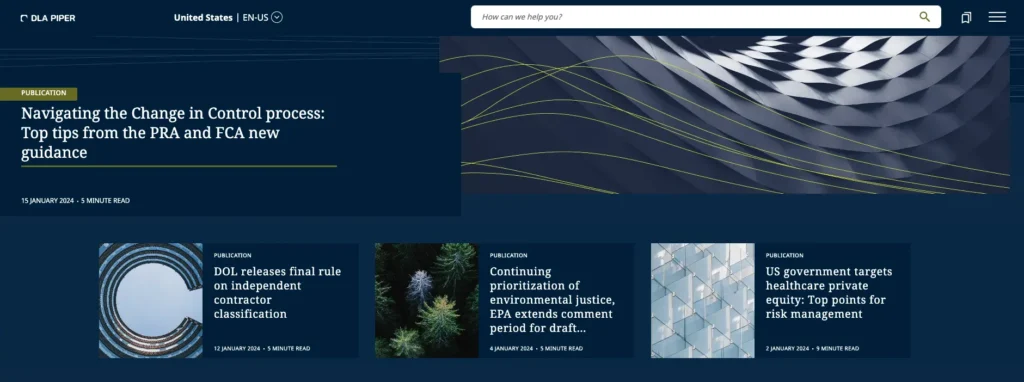
Tips for Crafting Effective Content Marketing for Law Firms
Ready to enhance the reach and impact of your legal content? Check out the following tips!
Tip #1: Set Content Marketing Goals

For law firms aiming to make a mark online, setting specific content marketing goals is essential.
You can start by identifying your main objectives, such as boosting your firm’s visibility, climbing search engine ranks, increasing web traffic through local SEO, or generating more client leads. These goals will shape your strategy and help you gauge success.
To track your progress effectively, choose metrics that align with your goals. If you’re focused on attracting more visitors, watch your site’s monthly traffic and visitor engagement.
For lead generation, monitor inquiries or consultations stemming from your content. There are several tools you can use to see the impact of your content in real-time.
You should also keep your goals flexible and review them regularly. This approach ensures your law firm content marketing stays on track, and it continually adapts to achieve the best results.
Tip #2: Create a Blogging Schedule

Implementing a blogging schedule ensures your readers know when to expect new insights that can improve engagement and SEO later.
Decide on a realistic posting rhythm that suits your team’s capabilities, whether that’s weekly or monthly, and ensure that the content follows topical relevance.
For instance, you might plan to start with a post on “Navigating Divorce Proceedings” in the first week, followed by “Protecting Intellectual Property in Small Businesses” in the third week.
In terms of delegation, imagine assigning the divorce proceedings post to a family law specialist in your firm, while a business law expert tackles the intellectual property article.
If your team is small, consider hiring a freelance legal writer with experience in these areas. We’ll share more about this in a separate section of this guide.
When planning, you have to stay adaptable. If a new regulation comes into effect that will affect your editorial calendar, adjust your schedule to include a timely post on this topic.
This flexibility shows your audience that your firm is knowledgeable and up-to-date with the latest legal developments.
Tip #3: Prioritize SEO for Lasting Visibility

Focusing on SEO or Search Engine Optimization is optimizing your online content so that a search engine likes to show it as a top result for searches of a certain keyword.
Most law firms hire SEO consultants to help them with this, but you must know how this works, too.
Below are some key SEO strategies to enhance your law firm’s content marketing:
Address Your Clients’ Most Pressing Questions
Tackling your clients’ most pressing questions head-on does more than just fill a content calendar; it builds your role as a trusted advisor in their legal journey.
Your expertise becomes a comforting hand on their shoulder that can confidently guide them through the legal thicket.
To find what your clients are really asking, turn your ear to the ground. Use email inquiries as a source of insight. You can also explore the following:
- Sales Calls and Paralegal Notes: Encourage your team to document the questions that come up during interactions with clients and potential clients.
- Social Media Inquiries: Track the questions you receive on platforms like Twitter, Facebook, and Instagram.
- Quora, Reddit, and Local Forums: These platforms are a great resource for user-generated questions on a wide array of topics, including legal matters. By searching for your practice areas on these sites, you can uncover specific questions that your content can answer.
- Google Searches and the “People Also Ask” Section: Simply typing your main topics or keywords into Google can reveal a number of related searches and questions that real people are asking. This section often highlights the most common queries related to your search term.
- Local Facebook and LinkedIn Groups: Joining groups related to your practice area can also offer a unique perspective on the concerns and discussions happening within your community.
This isn’t about guessing what people want to know but listening and responding precisely.
It’s like being the detective and the problem-solver all in one since you’re identifying the puzzles your clients are trying to solve and then laying out the pieces in an easy-to-understand format.
Aim for clarity and depth when you sit down to craft your answers. Avoid legalese or complex jargon that could alienate or confuse. Instead, imagine you’re explaining the issue to a friend over coffee—informative yet approachable.
Conduct Keyword Research
Keyword research is another step to help you create content that your potential clients would find useful.
You can use tools like Google Keyword Planner or Ahrefs to identify the exact phrases and questions your audience is typing into search engines. This is like finding a direct line to your client’s needs and concerns.
Once you have your list of keywords, use them in your content. Don’t just cram the keywords into your articles, but instead integrate them naturally into the text. They should fit seamlessly within the context of your paragraphs.
A good rule would be to include your primary keyword in the opening paragraph to reinforce topic relevance.
Meanwhile, for the relevant keywords, use them to make your writing more discoverable, but keep it natural and reader-friendly. This balance is key to attracting both search engines and real, live readers to your site.
Also, make it a habit to review and update your keyword strategy regularly. This will keep your content fresh and evergreen.
Use Titles and Headers
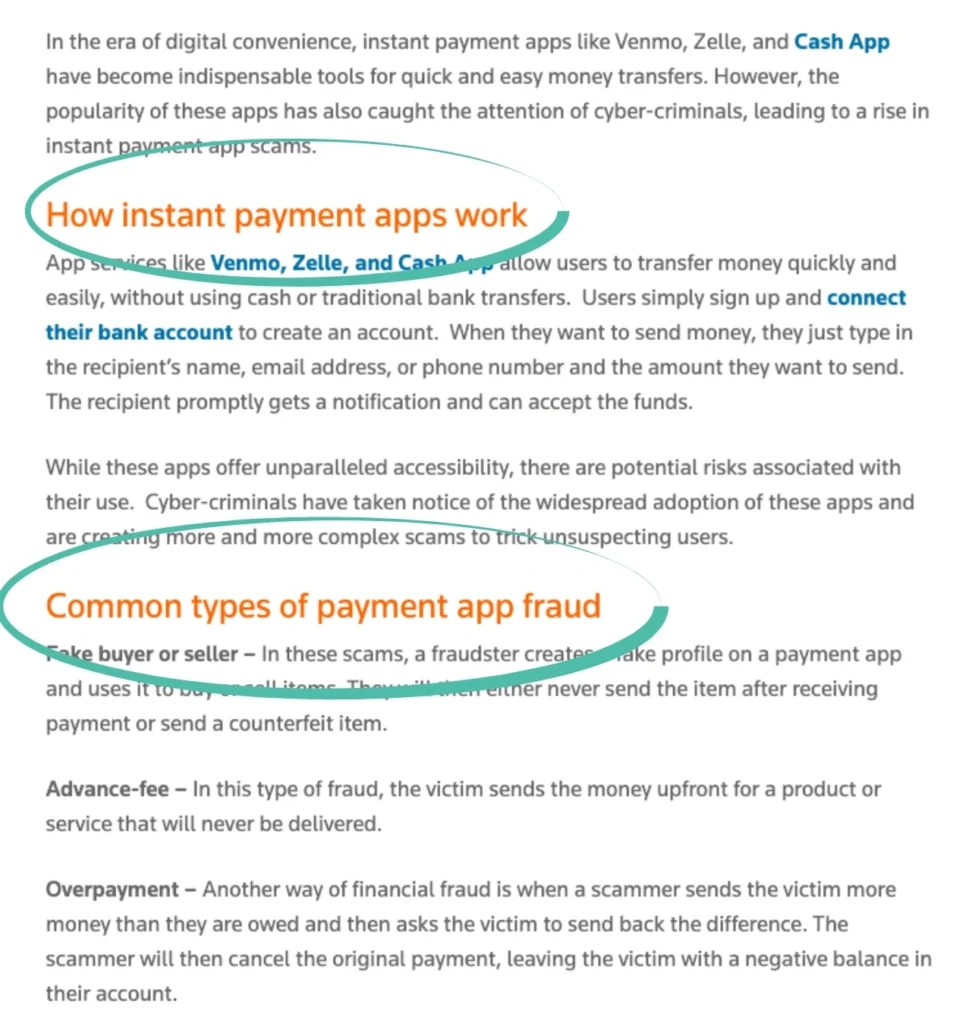
Creating captivating titles and headers is also a game-changer in making your legal content stand out.
For instance, if you’re writing about personal injury law, a title like “5 Steps to Take After a Car Accident” directly addresses a common situation while incorporating a key phrase.
This title is not only informative but also SEO-friendly, so it’s more likely to be found by those in need.
For headers within this article, consider using H2s like “Step 1: Ensure Your Safety” or “Step 3: Document the Scene.” These headers guide your readers through the content.
Ultimately, the key to using titles and headers effectively is to think of them as signposts on your reader’s journey through your content. They should capture attention, incorporate important keywords for SEO, and make the content digestible.
Get Backlinks
To leverage backlinks, focus on creating high-quality, shareable content that other reputable websites would want to link to. You can also reach out to industry blogs or legal publications offering to write guest posts.
When you do, include a link back to your site within the article or in your author bio. This will drive traffic back to your site and enhance your site’s authority and search engine ranking.
Add Internal Links
You should also make it a practice to link to your own relevant content whenever possible.
This could mean linking to a blog post that offers deeper insight into a topic mentioned in your current article or to a service page that relates to the subject at hand.
Use descriptive anchor text that gives readers and search engines a clear idea of what the linked content is about. This strategy keeps readers engaged with your content longer and helps search engines index your site more effectively.
For example, if you have a page on your site dedicated to “Estate Planning Services,” and you’ve written blog posts titled “Why You Need a Living Trust” and “How to Choose an Executor for Your Will,” make sure to link these posts to each other where relevant.
You could include a sentence like, “Understanding the role of an executor is crucial in estate planning. Learn more about how to choose the right executor for your will here.” in your “Living Trust” article and use it as descriptive anchor text.
Use Google Featured Snippets to Your Advantage
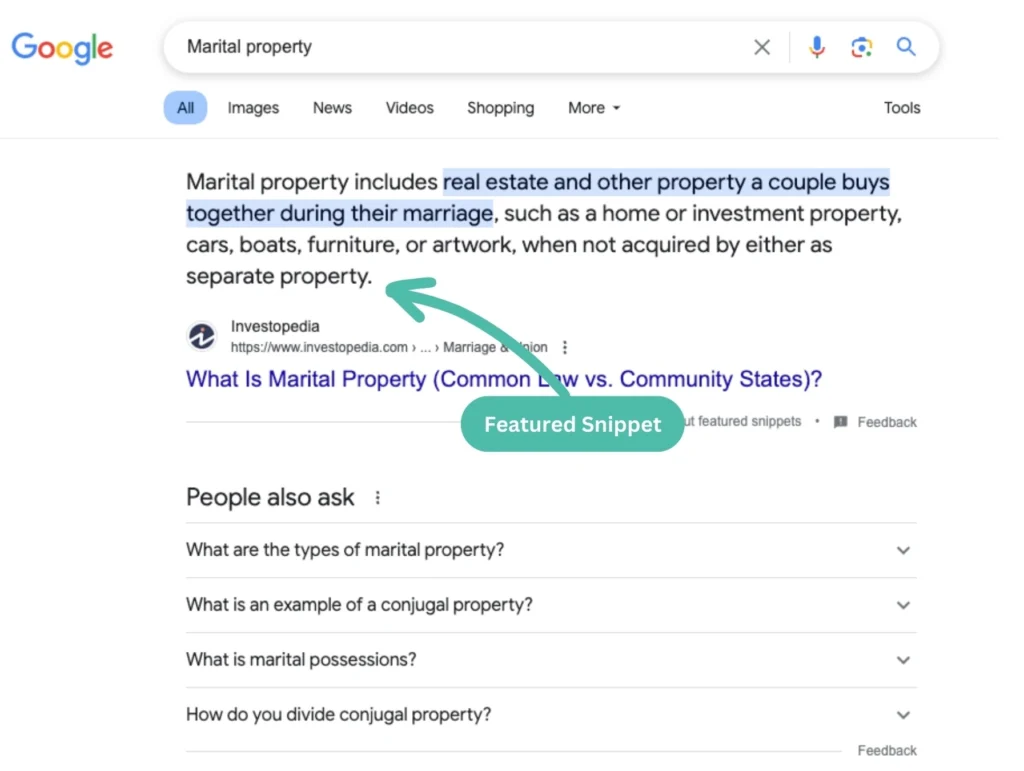
Google Featured Snippets appear right at the top of search results and quickly answer users’ queries. With a Featured Snippet, your content could capture about 8% of all clicks and provide your site with organic traffic.
Getting your content into these snippets involves the following steps:
- Focus on Long-Tail Keywords: Choose detailed and specific keywords related to your legal services. For example, target “how to dispute a will in New York” instead of just “will disputes.”
- Match Content Format with Snippets: Observe the format of existing Featured Snippets for your target keywords. Aim to structure your content similarly, whether as a list, table, paragraph, or video.
- Incorporate Question Words: Use question words like “why,” “do,” and “can” in your content. Research indicates that these trigger 29% of Featured Snippets.
- Keep Answers Concise: Aim for answers around 40-50 words or 250-300 characters to fit the typical length of Featured Snippets.
- Use ‘People Also Ask’: Incorporate questions from the “People Also Ask” section into your content to create comprehensive articles or guides that address common queries.
Tip #4: Learn from Your Competitors’ Successes and Mistakes
Keep a close watch on your competitors, especially those who are doing well online. Notice what kinds of content they’re posting and how people are reacting to it.
If a competitor has a popular blog post like “The Impact of Recent Tax Law Changes on Small Businesses,” think about what makes it engaging. Is it the way they explain things, or maybe they use helpful examples?
Then, spot what they’re missing. Maybe they haven’t covered a certain topic or section in-depth. This is your chance to stand out.
Moreover, pay attention to how your competitors interact with their audience online. If they’re slow to reply or give generic responses, you have an opportunity to do better. Quick, personalized replies can make your firm seem more approachable and caring.
Don’t just copy what others are doing; add your own spin to it. This way, you’re not just following the trend—you’re also setting it.
Tip #5: Build a Solid Foundation with Your Content
If you still don’t know where to begin in law firm content marketing, write content that introduces your services and what you stand for. This is your chance to answer the big questions potential clients might have.
For example, if your specialty is family law, write a guide that walks people through the divorce process, making it easy to understand.
Next, mix in real-life success stories, client testimonials, and case studies in law firm content writing. This shows off your expertise and proves you can deliver results. Stories where you’ve made a difference can reassure potential clients that they’re in good hands.
Make sure this essential content is easy to spot on your website. You could have a section called “Resources” or “How We Help” where people can dive deeper into what you offer.
This makes it simple for visitors to find the information they need and see why your firm is the right choice.
Tip #6: Prioritize Content Quality

Quality content should be easy to read, full of useful advice, and understandable by everyone, no matter their legal knowledge. Here are some specific tips to follow if you want to achieve high-quality content:
Demonstrate E-E-A-T
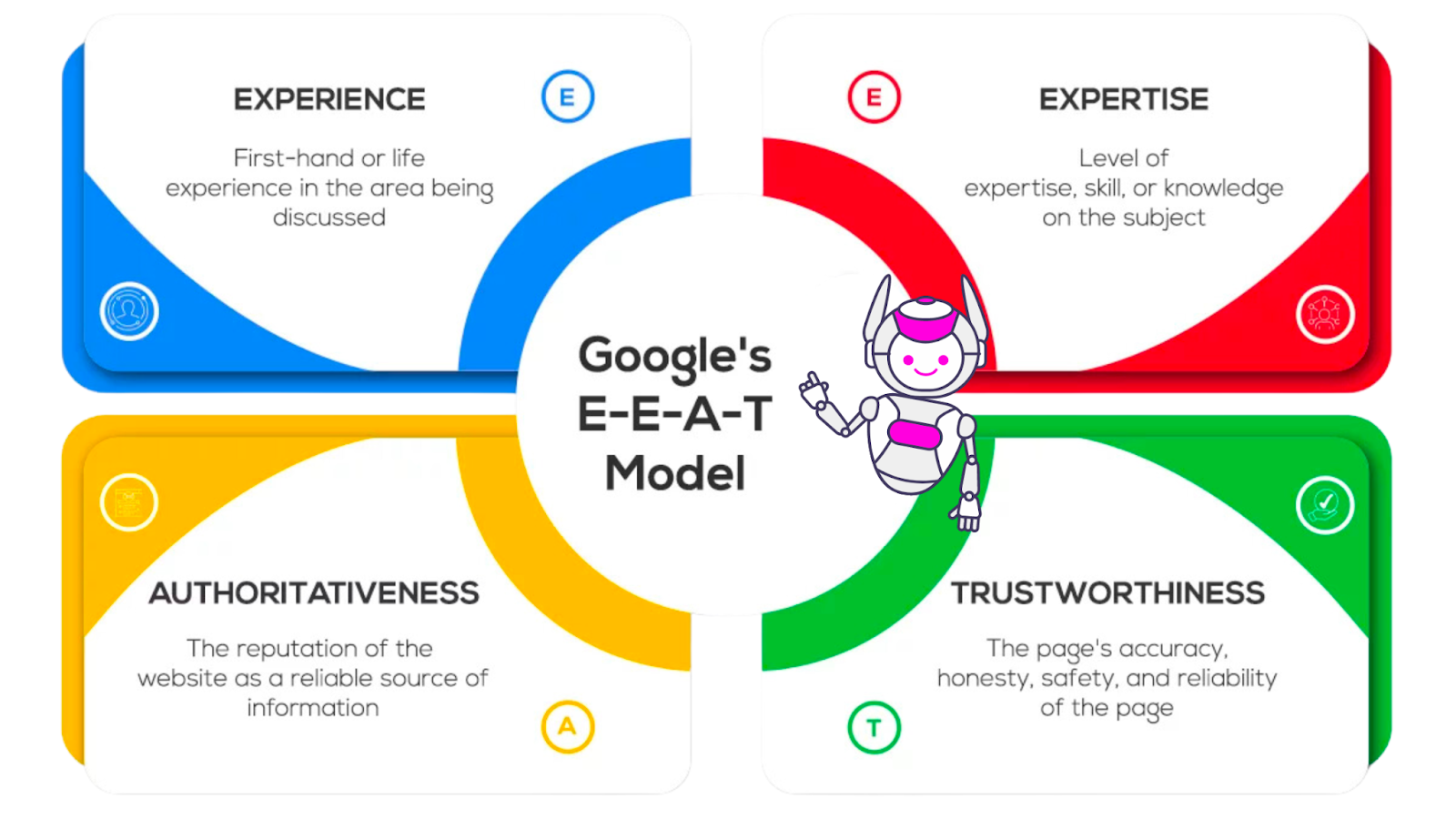
Through showcasing your Experience, Expertise, Authority, and Trustworthiness (E-E-A-T), people learn why they should trust your firm.
You might want to mention how long you’ve been helping clients in this area or any awards your firm has won when writing content marketing for law firms. This proves you know your stuff.
For example, start an article with, “With over 20 years of experience in estate planning, our award-winning team can guide you through…”
Avoid Legal Jargon
While legal terminology is second nature to you, it can be confusing for many people. Aim to use simple language and always provide clear explanations for any legal terms you must include.
Use “the person suing” instead of the plaintiff and the “person being sued” instead of the defendant. This helps everyone understand what you’re talking about since it makes legal concepts less intimidating.
Make Content “Snackable”
In law firm content writing, turning complex legal information into “snackable” content means making it easy and quick to consume. Here’s how you can do this:
- Break it Down: Use sections to split your content into small, digestible forms. Short paragraphs and bullet points also help readers grasp key points fast.
- Keep it Simple: Write short, straightforward sentences. This approach helps make your advice more accessible to everyone.
- Add Visuals: Incorporate images or infographics to illustrate points. For instance, a simple chart about the steps in a legal process can make understanding easier and keep readers engaged.
By focusing on these elements, you create informative and inviting content to read.
Crafting a Strong Call to Action
End your articles with a clear next step for readers. If you’ve just explained why making a will is important, you could say, “Ready to protect your family’s future? Contact us today to get started.”
Make it obvious what readers should do next, whether it’s reaching out for help, signing up for your newsletter, or following you online. This turns readers into clients.
Tip #7: Distribute Your Legal Content on Multiple Channels
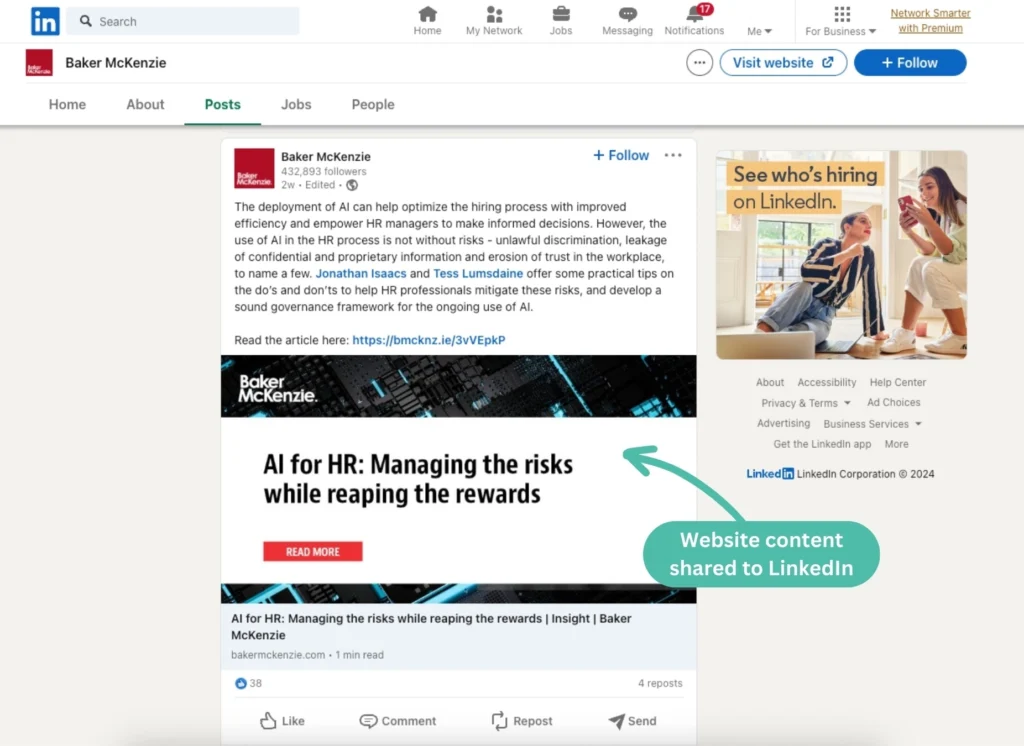
When you spread your content across emails, online groups, and social media, you’re not just throwing information out there. You’re strategically placing it where potential clients are looking, making your firm more visible and accessible.
You can start with email marketing. Collect email addresses from clients and site visitors, then send newsletters with snippets of your latest posts or articles.
If you’ve got a new guide on “Navigating Divorce,” tease it in your email and link back to your site for the full read. This direct approach keeps your audience engaged and informed.
Dive into online communities next. Share your content to a legal forum, a LinkedIn group, or a subreddit, wherever it fits. For example, if someone’s puzzled about tenant rights and you’ve covered it, drop a link to your piece.
Social media can’t be overlooked as well but be sure to tailor your shares to each platform. Got a piece on “Estate Planning Mistakes”? Break it down into bite-sized Twitter tips, detailed LinkedIn posts, and eye-catching infographics for Instagram.
Also, use hashtags to help your content show up in more searches.
Tip #8: Measure the Success of Your Legal Content
To understand the impact of your legal content truly, you should track and analyze its performance. This will allow you to refine your strategy and maximize engagement.
Using tools like Google Analytics, you can monitor how visitors interact with your content. You can check how long they stay on your blog posts or whether your content leads to more contact form submissions.
Another valuable method is tracking keyword rankings through SEO tools. This helps you see where your content stands in search engine results for key terms related to your services, like “divorce lawyer” or “business litigation attorney.”
If your articles or pages are climbing the rankings, it’s a good sign your SEO efforts are paying off. Conversely, it may be time to update your content or reassess your keywords if rankings stagnate or fall.
Engagement metrics, such as shares, comments, and likes on social media, also provide insight into your content’s success.
Posts that are widely shared or generate a lot of discussion on platforms like LinkedIn or Facebook indicate that your content is hitting the mark with your target audience.
Operational Considerations of Content Marketing for Law Firms

Law firms also need to navigate a variety of operational considerations to ensure their content strategy is both effective and sustainable. Let’s check out these key areas.
Legal and Ethical Considerations in Writing
When writing legal content, stick to the truth and avoid making any promises about case outcomes. Being upfront and honest keeps you in line with legal advertising rules and helps you build trust with your readers. Remember, clarity is your friend.
Moreover, always respect privacy and be accurate. If you’re using real-life cases as examples, make sure you’re not sharing private details without permission.
Plus, double-check your facts. Providing outdated or incorrect information can damage your credibility and potentially lead to legal issues.
Make it clear that your articles or blog posts aren’t personal legal advice. A simple statement reminding readers to consult your firm for their specific situations can go a long way in setting the right expectations.
Cost of Law Firm Website Content Writing
The cost of legal content can vary widely based on the writer’s experience, the topic’s complexity, and the content’s length.
Generally, you might pay anywhere from $50 for a short, basic blog post to over $500 for in-depth articles requiring extensive legal research.
To manage these costs effectively, here are some approaches you might want to consider:
- Identify your firm’s specific content needs. Determine whether you need regular blog posts, detailed guides, or a combination of both. This helps in precise budget allocation for your law firm’s website content.
- Start small. Initially, focus on a few key pieces of content to assess their impact. This strategy allows you to understand what clicks with your audience without committing a large portion of your budget.
- Explore hiring options. Freelance legal writers offer flexibility and competitive rates, making them a good choice for specific projects or occasional content needs. Meanwhile, content agencies provide comprehensive services but at a higher cost, suitable for ongoing, large-scale content production.
- Weigh the pros and cons. Consider what’s best for your firm’s needs and budget by evaluating freelance writers and content agencies. Sometimes, a mix of both could provide the right balance between quality and cost.
Note that while sticking to a budget is essential, it’s equally important to recognize the value that well-crafted legal content adds to your firm’s online presence and reputation.
Choosing the Best Content Writer
Finding the perfect content writer for your law firm is about balancing legal experience with storytelling skills. Here’s a guide to picking a writer who can elevate your firm’s content game:
Legal Expertise or Background
Seek out writers with a knack for legal matters or who have previous experience writing content for law firm websites.
Those with legal education, experience, or a track record of producing quality legal content can make complex topics approachable for your audience. This ensures your content is both accurate and engaging.
Strong Writing Skills
Of course, great writing matters! You need someone who can turn legal jargon into compelling stories that resonate with readers.
Check their portfolio for clear, well-structured articles that grab attention from the get-go. The right writer knows how to keep readers hooked and make your legal insights more interesting.
Understanding of SEO Principles
SEO can’t be overlooked as well. A writer versed in SEO best practices helps your content rank higher. They should know how to weave keywords into content naturally, structure articles for SEO, and craft click-worthy meta descriptions.
Reliability and Professionalism
The ideal legal content writer hits deadlines, communicates clearly, and handles feedback well. They should also be committed to ethical writing standards which are crucial in the legal field.
This reliability and professionalism ensures a smooth, productive relationship that benefits your law firm’s content strategy.
Key Takeaways
As you implement the strategies in content marketing for law firms we have shared in this guide, keep in mind the importance of continually monitoring and adjusting your approach based on performance data and evolving legal trends.
The landscape of online content is always changing, and staying ahead means being adaptable, insightful, and ready to make use of new opportunities as they arise.
In the end, effective content marketing for law firms is about connecting with your audience in meaningful ways.
By providing value through your content, you’re marketing your services and building relationships for long-term success.
Ready to elevate your local online presence with the best legal content? Connect with us at Partner Digital Agency. Schedule a 30-minute FREE consultation today!